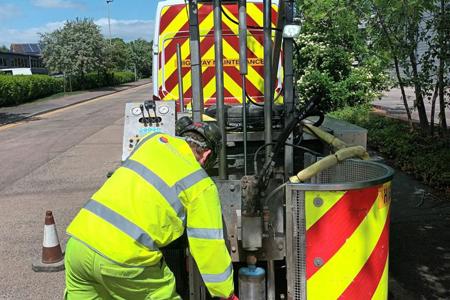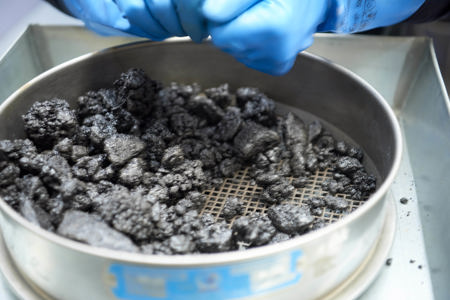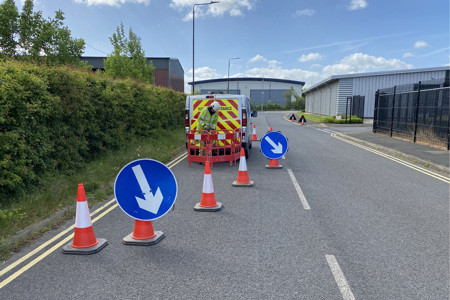Key Changes Coming October 2025 – Is Your Organisation Prepared?
Starting from 1st October 2025, the Street Works UK (SWUK) Material Classification Protocol will officially replace Regulatory Position Statements (RPS), RPS 298 and RPS 299. These changes will impact all utility companies and contractors involved in unplanned street and road works, including projects carried out under Immediate Urgent, Emergency, Minor, Standard, or Major permits that are issued solely for traffic management.
To remain compliant and avoid disruptions, it is essential to understand and implement the new risk based waste classification approach before the deadline and meet the Excavation Arisings Sampling Requirements head-on.

What are the Key Changes from the new Street Works UK regulations?
1. Mandatory Risk Assessments
All excavations must now undergo two forms of risk assessment:
- Desk-Based Assessment - Collects background, environmental, and historical site data.
- Site-Based Assessment - Evaluates the likelihood of contamination and is used to classify the waste before it leaves the site.
Note: While desk-based and laboratory analyses contribute to a more robust dataset, they do not directly affect waste classification under the protocol. The Site-Based Assessment is the primary method for classification.
2. Strict Waste Segregation Requirements
Under the new protocol, different waste types must be kept separate at all times, both on-site and during transport. For instance, asphalt and sub-base materials cannot be mixed. While they can be transported in the same vehicle, the mixing of waste streams is not permitted. This is an update to the WM3 Guidance.

3. Sampling and Compliance Testing
To ensure the accuracy of site-based risk assessments, a percentage of the waste must be tested in UKAS and MCERTS accredited laboratories:
- The number of sites requiring testing equals 1% of the qualifying excavations carried out two years prior (e.g., testing frequency in 2025 is based on 2023 Street Manager data).
- If the correlation between laboratory results and site assessments drops below 93%, additional testing will be required. The testing frequency can increase to up to 3% significantly increasing your associated costs.
- As accuracy improves, the number of required samples may decrease over time.
Importantly, these laboratory results do not affect waste classification at the point of removal but are used to verify the site-based risk assessment process.

4. Quarterly Reporting Obligations
All classification data and laboratory results must be:
- Uploaded to Street Manager
- Submitted to Street Works UK on a quarterly basis
The Environment Agency will monitor performance, and if assessment accuracy is consistently poor, testing requirements may increase, or the ability to operate under the protocol may be suspended. The removal of the Street Works UK protocol would lead to significant onsite disruption for Utility projects.

Key Takeaways
- The new Street Works UK (SWUK) Material Classification Protocol comes into force from 1st October 2025
- All excavations must now have Desk-Based and Site-Based Assessments
- Different types of waste must now be segregated both on-site and during transportation
- A proportion of the waste must be tested by UKAS and MCERTS accredited laboratories
- All classification and lab results must be uploaded to Street Manager and submitted to Street Works UK on a quarterly basis
How CTS Can Help You Stay Compliant with Street Works Waste Classification Protocol
Navigating the SWUK protocol can be complex, but CTS offers the expertise and support you need from start to finish.
We provide a comprehensive end-to-end service to ensure your organisation remains compliant with your 1% testing requirements while minimising disruption to operations.
Our Waste Class Classification Services Include:
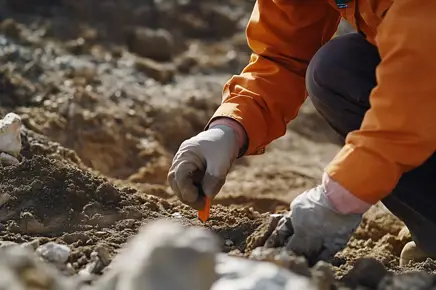
On-Site Sampling
At CTS, we eliminate the uncertainty associated with waste sampling. Once your excavation and waste segregation are complete, our qualified technicians will visit the site and conduct independent, compliant sampling of each waste stream (Bitumen and Subbase, where applicable).
We ensure every detail is covered:
- Secure and appropriate containers for every sample type
- All paperwork has been completed on your behalf
- Fast transfer to our Leicester testing facility
By using CTS, you can rely on accurate, representative samples collected to the highest standards, giving you total confidence in the results.
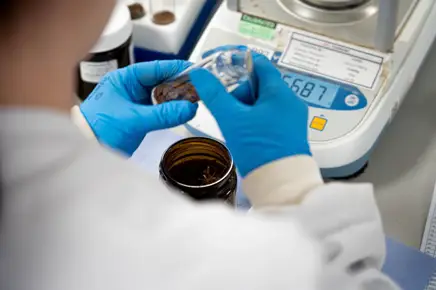
Laboratory Testing
Our state-of-the-art laboratory in Leicester provides comprehensive testing in line with Streetworks guidance. Each project requires two samples (Bitumen and Subbase), which are analysed against the full testing suites specified in regulations.
The outcome is a clear, factual report that provides you with:
- Reliable data you can trust
- Full compliance with industry standards
- A transparent record to support your project's requirements
With CTS, you get fast and accurate testing that removes doubt and keeps your project moving forward.
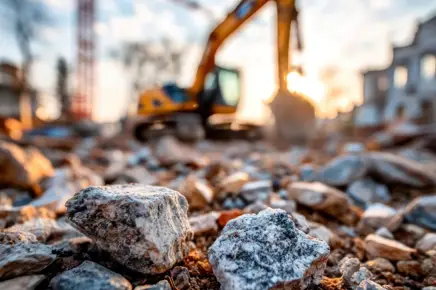
Waste Classification and Interpretation
Understanding your results is just as important as the testing itself. That's why we work with our sister company to deliver expert interpretation of your data.
We go beyond the numbers to provide:
- Clear classification – Green (Non-Hazardous) or Red (Hazardous)
- Detailed insight into what's driving a Hazardous result
- A Streetworks Hazardous Waste Summary report for your records
This means you can confirm the accuracy of your risk assessments, make informed decisions, and demonstrate compliance with confidence.
CTS: Your Waste Classification Protocol Partner
The new requirements come into force on 1st October 2025, and CTS is on hand to help you comply with the protocol. Whatever your needs, CTS is your trusted partner for SWUK protocol compliance. Contact us today to discuss your requirements and ensure your teams are ready for the SWUK protocol deadline.


